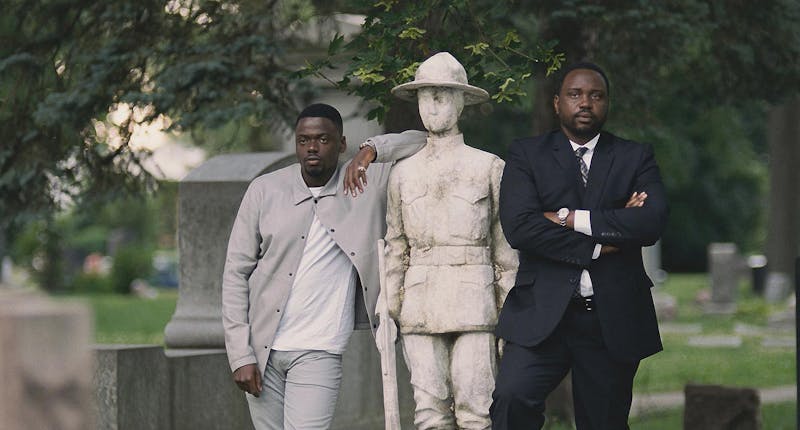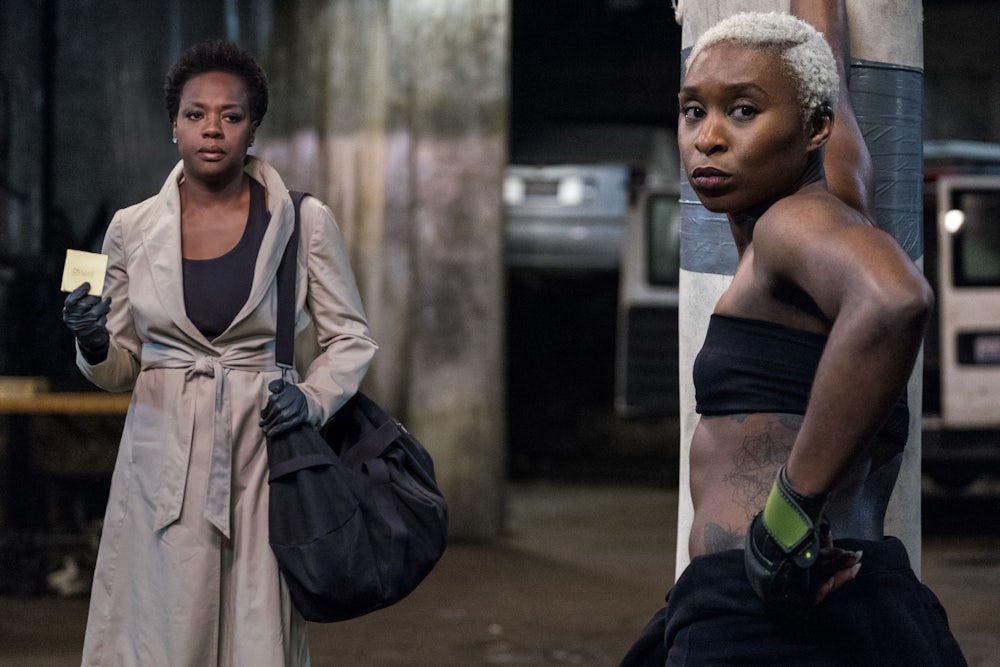The charming
sight of a gang of hustlers, scheming to commit robbery and then committing
that robbery, is not a new one. The heist movie became a classical genre in the
1960s with cheerfully swinging films like Ocean’s
11 (1960) and The Italian Job (1969).
In the 1970s, the heist became a narrative template for other styles to
build upon, in movies as different as Dog Day Afternoon (1975) and
The Sting (1973). Around the end of
the century, franchises like Mission:
Impossible (1996 onwards) and the Oceans
reboots (2001 onwards) launched serial heist-events that have dotted the
recent decades of our lives with predictably fun, sexy adventures into robbery.
The question of motivation has always been an interesting aspect of the heist movie. Perhaps the paradigmatic motive for a robber is lighthearted greed: Michael Caine or Robert Redford pocketing the cash in order to have fun with it. When a hustler has different drives, as in the emotional desperation of Al Pacino in Dog Day Afternoon, the heist film reveals the theft plot to be an empty container for whatever themes a director might like to put in there.
Widows, the new feature from Steve McQueen (Hunger, Shame, 12 Years a Slave), is a brilliant case in point. Based on the novel by Lynda La Plante, and co-written by Gillian Flynn, the movie stars Viola Davis, Michelle Rodriguez, and Elizabeth Debicki as a gang of women whose male partners all died committing a robbery together. Saddled with their debts and pursued by the thrillingly evil Jatemme Manning (Daniel Kaluuya), the trio decide to pull off a job themselves, recruiting Rodriguez’s babysitter, Cynthia Erivo, to make a gang of four.
The movie is set in Chicago, and the background to their heist is a corrupt political contest for alderman of the city’s 18th ward. Colin Farrell plays Jack Mulligan, a young Irish-American politician from a deeply racist lineage who is challenged by Jatemme’s brother, Jamal, for local supremacy. As in Martin Scorsese’s The Departed (2006), we’ve got regional corruption and criminal/cop conflict as the moral landscape against which a symbolic crime takes place.
But it’s the hearts and minds of the four female gangsters that form the core of Widows. Davis is Veronica Rawlings, a teachers’ union delegate with a fluffy white dog who walks the line between empowered and downright bossy toward the other women. It’s a shame, since Davis has been directed this way a lot in recent years, but her character demands a lot of forcibly restrained emotion and lip-wobbling semi-tears. Davis is a great actor with a range, but this role is very capital-A “Acting,” and it doesn’t showcase her many talents. Rodriguez plays browbeaten mom Linda, adding some really subtle complexity to her general vibe of exhaustion. The most fun performance comes from Debicki as Alice, an Amazonian babe who emerges from a life of abuse to scam men, rob the rich, and otherwise take ownership of her life.

In the role of Jatemme, Daniel Kaluuya affirms his place as one of the best young actors at work today. McQueen gives Kaluuya some fantastic scenes to work with. He and his gang show up to terrorize Veronica’s driver, a guy named Bash. As Jatemme tires of taunting the driver and turns away to slump in front of a football game on TV, the camera stays on him, as if he’s the only person that matters in the room. We hear the blows land, but offscreen, as Jatemme idly lifts the remote.
At Veronica’s husband’s funeral, he watches the white politicians gladhand her from the sidelines, before taking his bubblegum out of his mouth and pressing it to the end of a gravestone statue’s sculpted gun. It’s a gorgeously ironic little shot, parodying the hippie notion of stopping a rifle up with a flower. What Jatemme wants isn’t peace, but power: he’s going to go after it, and he’s going to use different means than through historically white institutions, but he doesn’t care if he desecrates lives along the way.
McQueen’s cinematography is outstanding throughout. It’s not subtle, but it’s beautiful. When Colin Farrell is playing the corrupt politician at his worst, we see him on a boat with the Chicago skyline behind him. Farrell stands dead center of the shot, his boat arrayed symmetrically around him, as if he and the institutional power he embodies are the only stable points in the universe. By contrast, we see Jatemme in constant motion; he peers out of cars, wanders in and out of other people’s homes, continually violating the boundaries of the private and the public with his version of power, which is violence.
In an interview with Reuters, McQueen has said that he wanted in Widows to “engage with that whole idea of escapism” in the heist plot, but “not negate the political and the current ... social economical environment that we live in today.” He gave himself, therefore, the difficult job of bolting a thrilling story to a sensitive social portrait, all while plugging in a set of character motivations revolving around grief, gender, race, and loneliness.
Veronica’s grief begins and ends this movie, and so it is her pain through which we experience all the delicate social textures that Widows presents. Because she’s tough and she needs to get the job done, Veronica holds her agony back—we learn only halfway through the movie that she has also lost a son—from the foreground. A performance like that is tough to pull off, since it’s as much about repression as it is about true feeling. It would be nice to see Davis allowed to act naturalistically, or lightheartedly; she’s often cast in very serious or very bombastic roles that require her to summon all her presence, but dim her light. McQueen just about pulls off the feat of keeping us engaged in this story through the ambivalent heroism of this grieving woman. But it’s the dashing camerawork and broad historical awareness of Widows that makes it a truly sophisticated action film, and by far the best crime movie of 2018 so far.
